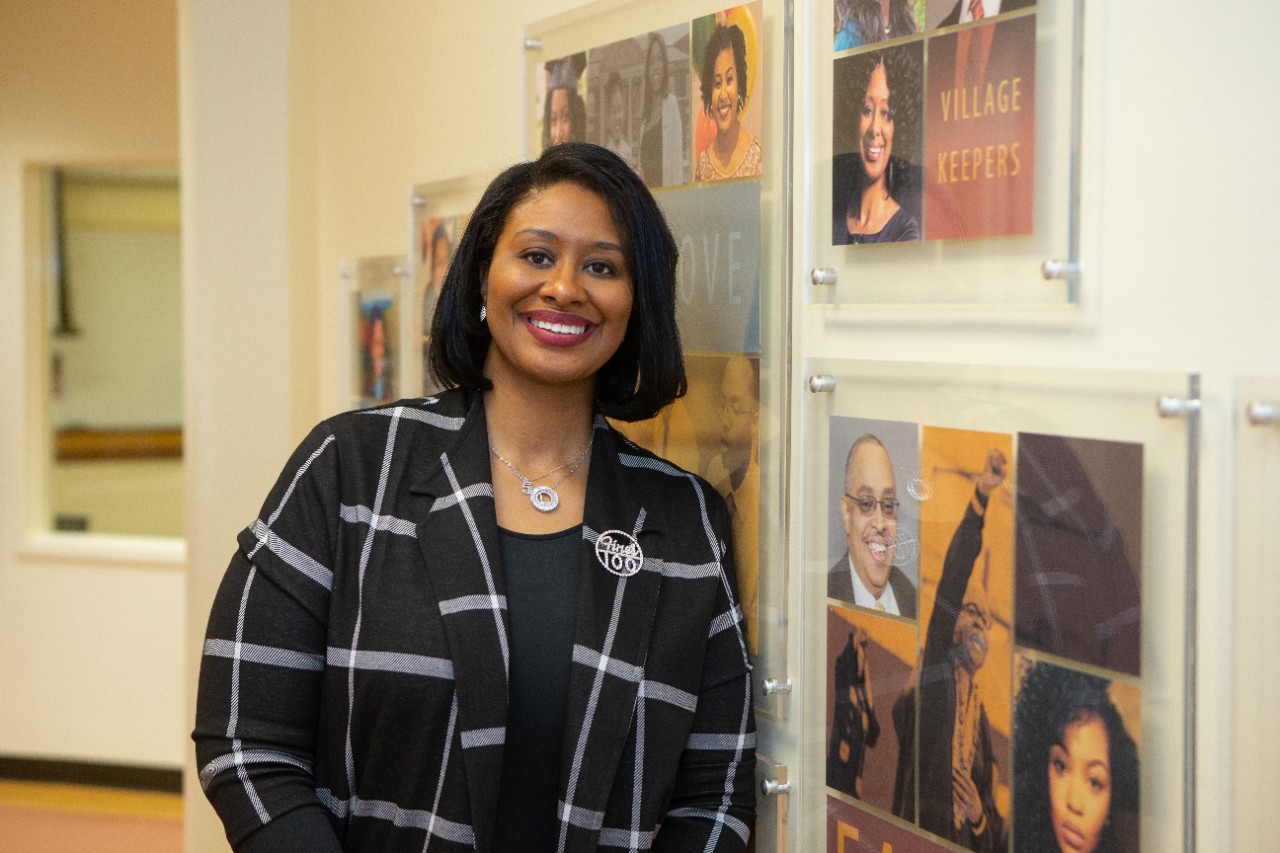
UC Faculty Awards 2020: Littisha Bates
College of Arts & Sciences assoc. professor honored with Faculty Senate Award for Exemplary Service
When Littisha Bates came to UC in 2009, right out of graduate school at Arizona State University, the PhD sociology researcher was part of a cohort of three new faculty members, all underrepresented scholars. “We were the three musketeers,” she says.
But the university could be siloed, Bates says, and as the only black woman in the sociology department, she found the experience isolating. “There was not very much community for scholars of color,” she says, “particularly from my perspective, black scholars.”
In the spirit of service, Bates took the lead. Working with a team of black faculty members from across the university, she helped form the Black Faculty Association (BFA), an organization dedicated to advocacy, professional support and establishing community among its members. Often, she says, inclusivity becomes a numbers count, but the BFA was designed to accomplish a more lasting and integrated legacy.
Says Bates: “It’s about changing structures, changing policies, changing practices that not only allow us to be counted in the institution, but feel like we are a part of the institution, and that there are policies that want us to succeed.”
For her dedication to the pursuit of diversity and inclusion, Bates has earned the 2020 Faculty Senate Award for Service to the University. “Dr. Bates’ service is an outstanding example of the work that we must do to progress toward the university’s inclusion goals,” says Jennifer Malat, divisional dean of social sciences in the College of Arts and Sciences and professor of sociology. “In her work, Dr. Bates creates spaces in the college and the university that affirm all values of faculty and student experience.”
As the BFA marks its fifth anniversary, its mission, vision and programs dovetail with the inclusive excellence platform of UC’s Next Lives Here strategic vision. With guidance from BFA leaders, similar organizations have emerged for both Latino and LGBTQ faculty, and Bates continues to serve on the Executive Committee of the BFA. “There is much more to be done, but I feel more hopeful than I’ve ever felt about the future of true inclusivity at the university,” she says.
Beyond her service to faculty, Bates has established a reputation as a tireless advocate for students. She has regularly mentored students through advocacy programs such as the PR1ZE (Putting Retention 1st in the Zest for Excellence) program, and as an advisor to the Sociology Organization for Students (S.O.S.). She is also a frequent advisor in the African American Cultural and Resource Center (AACRC) where she counsels and inspires marginalized or underrepresented students to stay the course, with her own blend of compassion, insight and tough love.
“It’s part of my personal mission to ensure that no student who comes through these doors doesn’t have a sense that they belong here, that it’s okay for them to be here, and that they can do well here,” Bates says, “I want to be the voice in their head when they’re experiencing self-doubt, telling them that they can do it, and that they absolutely will do it.”
Featured image at top: Littisha Bates, recipient of a 2020 Faculty Senate Award for Exemplary Service to the University. Photo/Lisa Ventre/UC Creative + Brand.
UC Faculty Awards
UC is saluting the 16 winners of our 2020 All-University Faculty Awards in a three-part series in UC News weekly through April 22. Beginning April 23, all winners will also be showcased on the Faculty Awards website.
Related Stories
Love it or raze it?
February 20, 2026
An architectural magazine covered the demolition of UC's Crosley Tower.
Before the medals: The science behind training for freezing mountain air
February 19, 2026
From freezing temperatures to thin mountain air, University of Cincinnati exercise physiologist Christopher Kotarsky, PhD, explained how cold and altitude impact Olympic performance in a recent WLWT-TV/Ch. 5 news report.
Discovery Amplified expands research, teaching support across A&S
February 19, 2026
The College of Arts & Sciences is investing in a bold new vision for research, teaching and creative activity through Discovery Amplified. This initiative was launched through the Dean’s Office in August 2024, and is expanding its role as a central hub for scholarly activity and research support within the Arts & Sciences (A&S) community. Designed to serve faculty, students, and staff, the initiative aims to strengthen research productivity, foster collaboration, and enhance teaching innovation. Discovery Amplified was created to help scholars define and pursue academic goals while increasing the reach and impact of A&S research and training programs locally and globally. The unit provides tailored guidance, connects collaborators, and supports strategic partnerships that promote innovation across disciplines.
